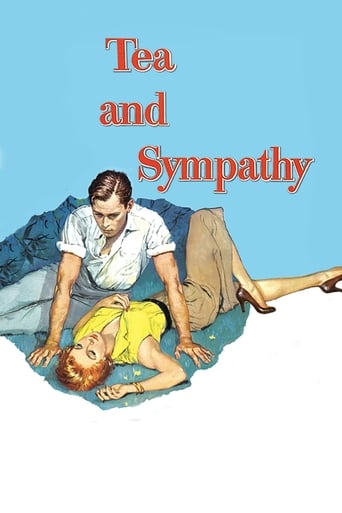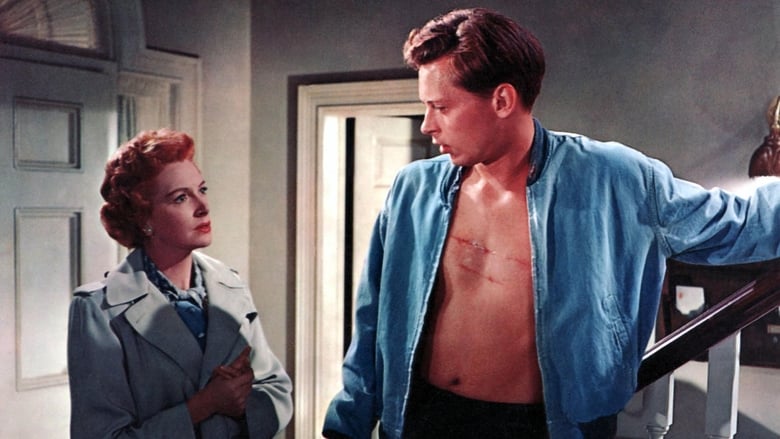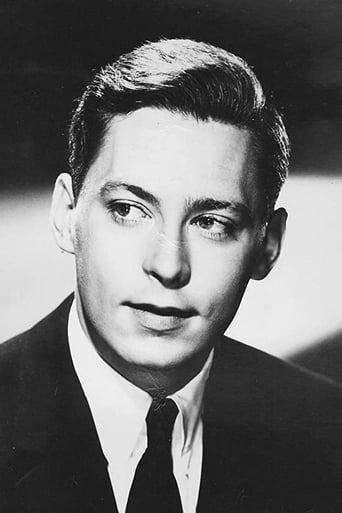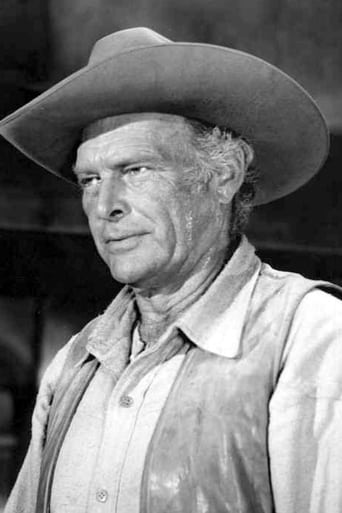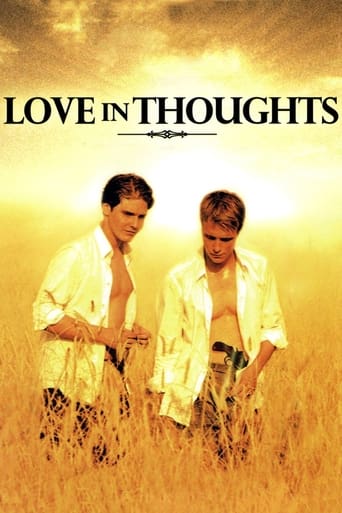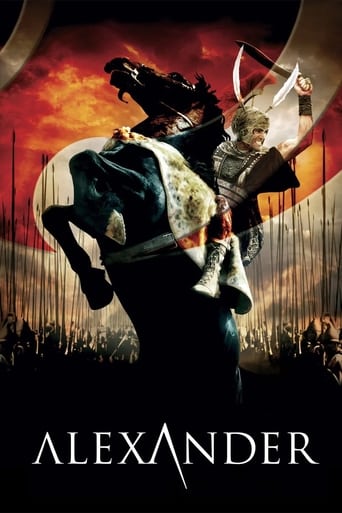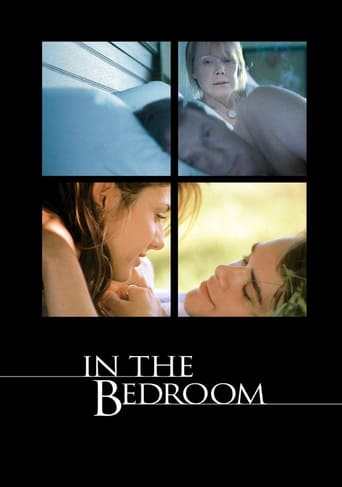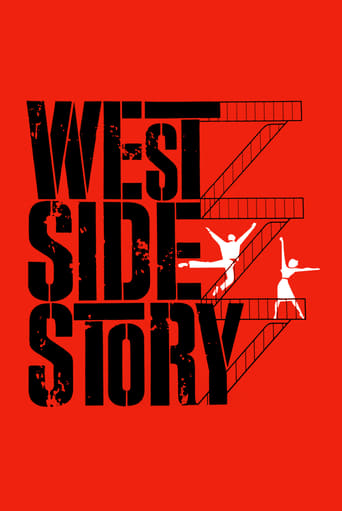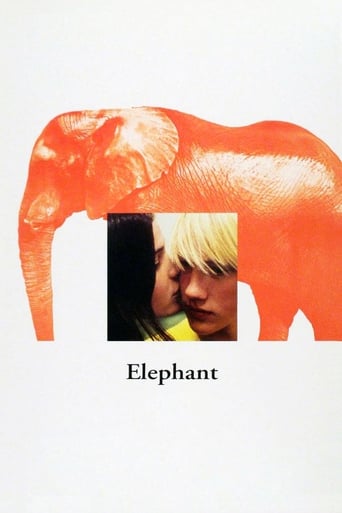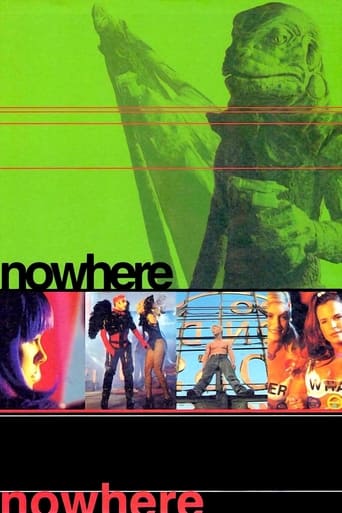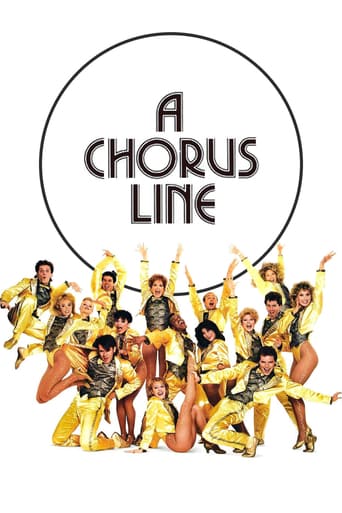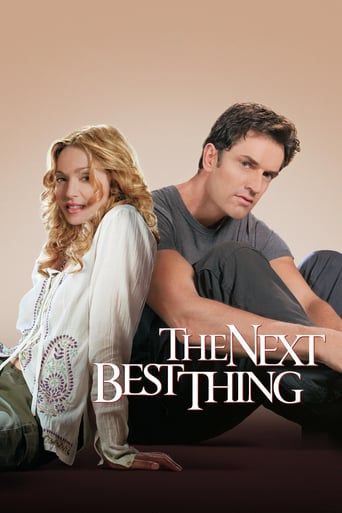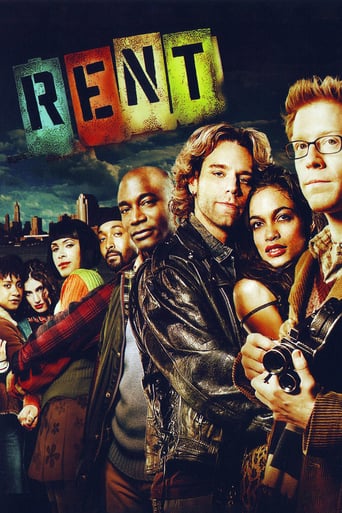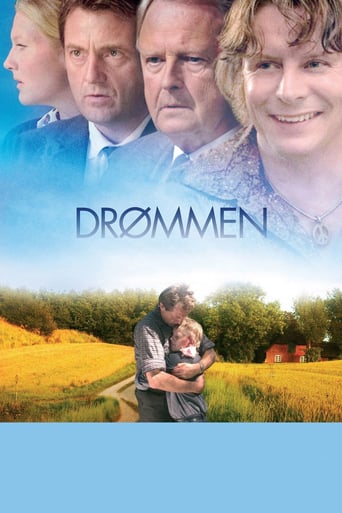Tea and Sympathy (1956)
At a high school reunion, a middle-aged man recalls his boarding school days, when the only person who seemed to sympathize with him was his housemaster's wife.
Watch Trailer
Cast


Similar titles
Reviews
A Disappointing Continuation
Although it has its amusing moments, in eneral the plot does not convince.
A story that's too fascinating to pass by...
It’s sentimental, ridiculously long and only occasionally funny
Slickly done MGM soaper. As I recall, the movie was much talked about at time of release, no doubt because of its touchy subject matter. Homosexuality was primarily a taboo topic in the straitened 1950's. The question posed is whether Tom's non-masculine traits are traceable to a latent homosexuality. That's what the film's basically about though the word itself is never mentioned. Due to family tradition, Tom's required to attend an upper-class all-boys college. That would be okay, except hyper-masculine behavior is the required norm, and since Tom's basically a sensitive type seemingly uninterested in girls, he's ridiculed and shunned by the other lads as a "sister-boy". The wife of his macho house-supervisor, however, is a sensitive soul herself. She cares about his plight when no one else does. But Laura's not sure how to help, especially when the school environment discourages sensitivity as unmanly. So how will Tom's predicament evolve when so much of his life combines against a non-conformity he seems unable to resist.The story's told in Tom's flashback, so we know that whatever happens, he physically survives. But in what kind of mental state, we don't know until the end. Note how director Minnelli films entirely at an impersonal distance. There are no subjective close-ups. That way story remains uppermost, at the same time personal emotions are minimized. Whether this was the best course remains, I think, debatable.Fortunately, the lead actors, Kerr (Tom) and Kerr (Laura), avoid excess. Thus, the results avoid treacle, the usual pitfall of a movie of this type. However, the boys' boisterous horseplay is spread on with a trowel, an over-exaggeration I guess to better contrast with the withdrawn Tom. But it's not really needed to that distractive degree.Anyway, the story manages considerable human interest as both Tom and Laura try to deal with the travails of a hyper-masculine environment. I like the way Laura is slowly drawn into Tom's kindred soul predicament, and in a way that provides her own self-discovery after years of feminine conformity. Also, catch how subtly impotence is implied when Tom visits bargirl Ellie (Crane). The problem also turns out to be a key plot ingredient.By and large, the taboo elements appear dated. Still, interest is pretty well maintained over the two-hour runtime. That plus a thoughtful upshot makes this MGM production worth catching up with.
Vincente Minnelli's "message" movie TEA AND SYMPATHY is excellently crafted with Golden Hollywood poise, rehashed for the celluloid by Robert Anderson from his own stage play, it reunites the original play's three leads, Deborah Kerr, John Kerr (no, they're not related) and Lief Erickson. In spite of its antediluvian views on masculinity, the film appositely re-surfaces as a searing melodrama zinging at today's intolerant world, where egregious persecution is wantonly inflicted on minorities and non-conformists.Tommy Lee (John Kerr) is a 17-year-old prep school student, he is ostracised by his jock classmates who coin him a sobriquet "sister boy", why? Because of his curly hair, his gait, his sewing skill, his inclination of classical music over sport and roughhouse (he excels in tennis though), he reads Voltaire's CANDIDE and the fact that he has never bragged about girls. All these facile symptoms can be nimbly dismissed as specious by a more rational mind (even in its time), like Tommy's roommate Al (Hickman), who always stands up for him but the real helping hand comes from Laura Reynolds (Deborah Kerr), wife of Tommy's macho coach Bill (Erickson), who is transparently not in line with his wife's sympathy over Tom. The title refers to the common "interested bystander" stance which Laura is advised to take being a woman in her position - "doesn't go beyond giving him tea and sympathy on Sunday afternoons".Bearing mockeries and mobbing from his peers, contempt and grudge from coach Bill and mounting pressures from his father Herb (Andrews), Tommy starts to unravel in spite of Laura's intransigent support and growing affection, in a last-resort attempt to prove his manhood, he arranges a rendezvous with the local loose girl Ellie (Crane, a chain-smoking waitress depicted with a broad and vulgar stroke), Laura overhears it and in her last-resort attempt to pre-empt a disastrous wind-up, she puts on her fancy blue dress and manoeuvres a tête-à-tête to procrastinate Tommy's action, during which she discloses the death of her late first husband, who died young just because he was trying to prove something that he needn't proving, so as to convince Tommy that he shouldn't follow the same old road to ruin. Here, Laura's motivation has been cogently vindicated, she has been a victim of the bigotry and prejudice of the rank masculine and patriarch society, so how can she just sits and doles out her tea and sympathy?Nevertheless, Laura doesn't stop the disaster since she backs off from Tommy's desperate advances which later she regrets, also because obviously, the story needs something more dramatic to grab the attention and up the ante, yet, the movie is cleverly introduced through the lyrical recollections of Tommy a decade later in a classmate reunion, so Minelli assures audience in the very beginning that Tommy comes safe and sound out of his trials and tribulations unjustly cast upon him. In the beautifully arranged woodland scene, as if in a dreamlike fairy land, Laura comforts a distraught Tommy who has survived a suicidal attempt, with her kiss, the purest and tenderest kiss from a woman to a sensitive young man on the cusp of adulthood and whose nature is in the danger of being cruelly oppressed, even not being typecast as a nun, Ms. Kerr's Laura continues carrying out the name star's holy mission to save lives. There is gratitude in that kiss too, through Tommy's predicament, Laura finally can face up the marital hurdles between her and Bill under the surface of superficial harmony and make a right decision for her own sake.John Kerr is another young talent whose acting career failed to launch after a promising start, he fleshes out Tommy's vulnerability, sensitivity and perplexity, but righteously opts not to emphasise on queer mannerism, in fact, he is fairly attractive as an object of desirable for girls (and boys too, of course), the trenchant irony is just self-evident when Al tries to correct Tommy's unorthodox walk, those accusations are so inadequate and ridiculous. Fault-finding can flourish on everything and anything, which soundly advices us to nurture a discerning eye in lieu of hastily jumping on the bandwagon. Character players Leif Erickson and Edward Andrews, the former lands a meaty supporting role as the narrow-minded coach, in every step, he manages to show beyond doubt that Bill is unworthy of Laura's merits, and possibly, he is a deep-closeted homosexual himself, Erickson's butch appearance holds sway in a ghastly dislikeable role; as for the latter, in his more nuanced brew of pleasantry and angst, Andrews comes out as a more assured propeller to push Tommy into the abyss.In retrospect, 1956 should have been Ms. Kerr's Oscar-reaping year, only if she were nominated for this film instead of the hyped pap THE KING AND I (1956), as much as I worship Ms. Ingrid Bergman, her Oscar-winning performance in ANASTASIA (1956) is no rival compared with Ms. Kerr's consummate cri-de-coeur against the omnipresent scourge lurking underneath every imperfect soul. Ms. Kerr is such a pioneering "queer" icon to be reckoned with, especially in view of a less liberal era, whose legacy and glamour need to rediscovered by younger LGBTQ generations, forever dignified, you can never sense a tint of condescension in her refined presence, and her Laura Reynolds, what a courageous woman and what a tour-de-force to witness!
The reviews here of this film are either very supportive of the film, or very dismissive of the film. I was pleased to see more that are supportive, but unfortunately there are quite a few people out there that just don't get it.In age where over a dozen states now have gay marriage, it is virtually impossible for anyone younger than -- well, let's say 50 -- to understand the time which this film depicts. Stonewall was 16 years in the future. The vast majority of gay men were totally closeted. You cannot compare the gay world of 1956 with the gay world of 2013. This film takes place in the era when men were (supposed to be) men. Many people were so dense about gay life that they couldn't conceive of Liberace being gay (and this play came about just as Liberace was coming into our living rooms every week); but few "saw" it...or wanted to see it...or wanted to admit it. So for those of you who want to put down this movie as being unrealistic...it wasn't that unrealistic in the mid-1950s. In fact, for its time, this was a rather daring film, and apparently had difficulties with the motion picture production code.It's very easy to attribute some of the film's misguidedness to the stereotypes that we see here. But, often stereotypes become so because of a degree of accuracy. The young man depicted in this film is marching to a different drummer, at a time when not many people did. The most interesting question the film brings up -- and doesn't answer -- is whether or not the young man was actually gay. It seems as if he was, or perhaps he was just not ready to take on an active heterosexual life. Perhaps he was closeted. It's ambiguous. The father's attitudes are not that off-base when you consider that the character was born not long after the turn of the last century! Get a little historical perspective. If there is one character here who is outlandish, it's probably Leif Erickson's coach-role...dripping with testosterone, when it really makes him and the other "boys" look too involved with guy-stuff. Deborah Kerr here is so good...as some have pointed out, a little stage-play-ish...but I guess that was to be expected after having played the role on Broadway for so long. In fact, there are some problems with her character...getting overly involved and overly mothering. Personally, I thought John Kerr...well, either he was overacting in some of the most psychological scenes, or he was falling back on the way one has to act on a large stage in a huge theater. Edward Andrews...well, as the father I guess he was supposed to be smarmy...and he certainly was. It was nice to see a more adult Darryl Hickman; for my money, Hickman was the finest of the child actors of the whole era, but as a young adult he wasn't as convincing.I'm glad I watched this film, but that's not to say that I didn't find it just a bit tedious. It was probably a bit overly long, coming in at over 2 hours. I can't say this was Vincente Minelli's greatest accomplishment as a director. But if you want to get a little historical perspective on the issue of gayness in the old days, this may be as good as anything else out there.
Conformity is a drag, especially when it's imposed on someone. That is the theme of this movie. It's no joke being the target of a smear campaign, especially when the smearing is groundless. Overall, this is a good movie. John Kerr and Deborah Kerr give excellent performances as two persons who discover that they have a lot in common. Metaphors abound in this movie; characters take on sociological meaning. The movie is both subtle and powerful. The movie portrays the kind of repressiveness that can literally drive one to despair. Of course, being based a stage play, the movie itself is also stagy. Nevertheless, the actors succeed in bringing the story to life. Although the story revolves around the relationship between a married woman and a young teenage boy in a boarding school, it is more about the woman and less about the boy who is an instrument through which the woman gets in touch with her own feelings. The movie deals with this storyline in a forthright manner and for that reason alone this movie is worth watching. Kudos to Deborah Kerr for a marvelous performance.

